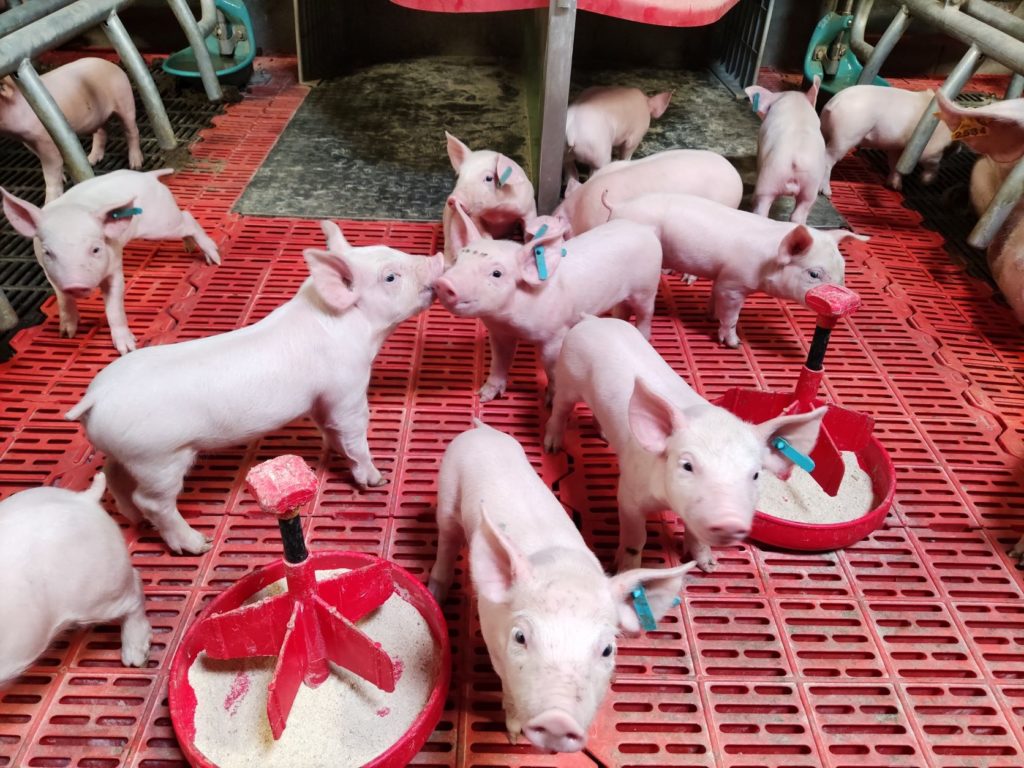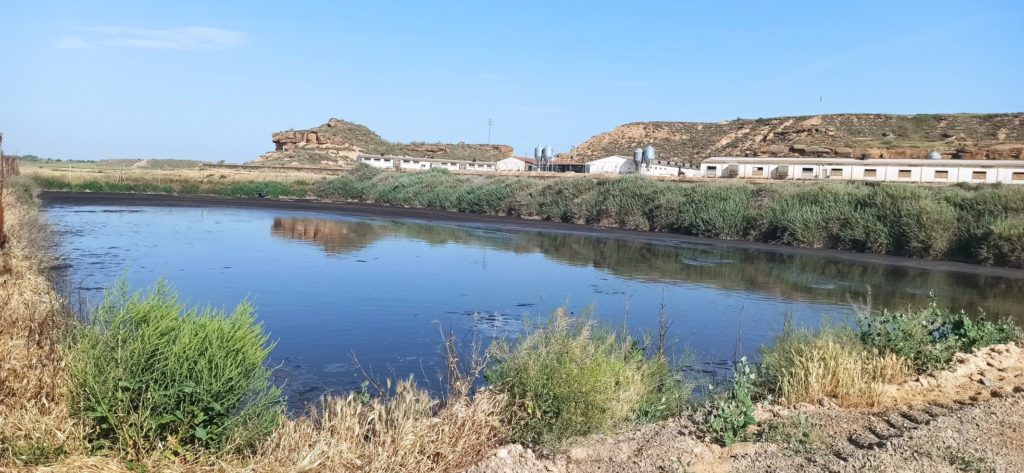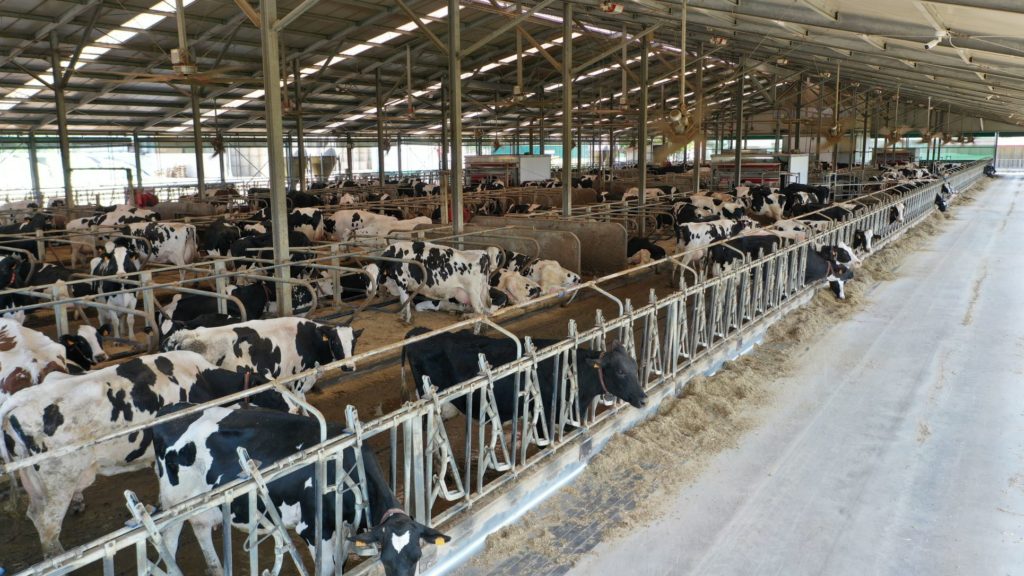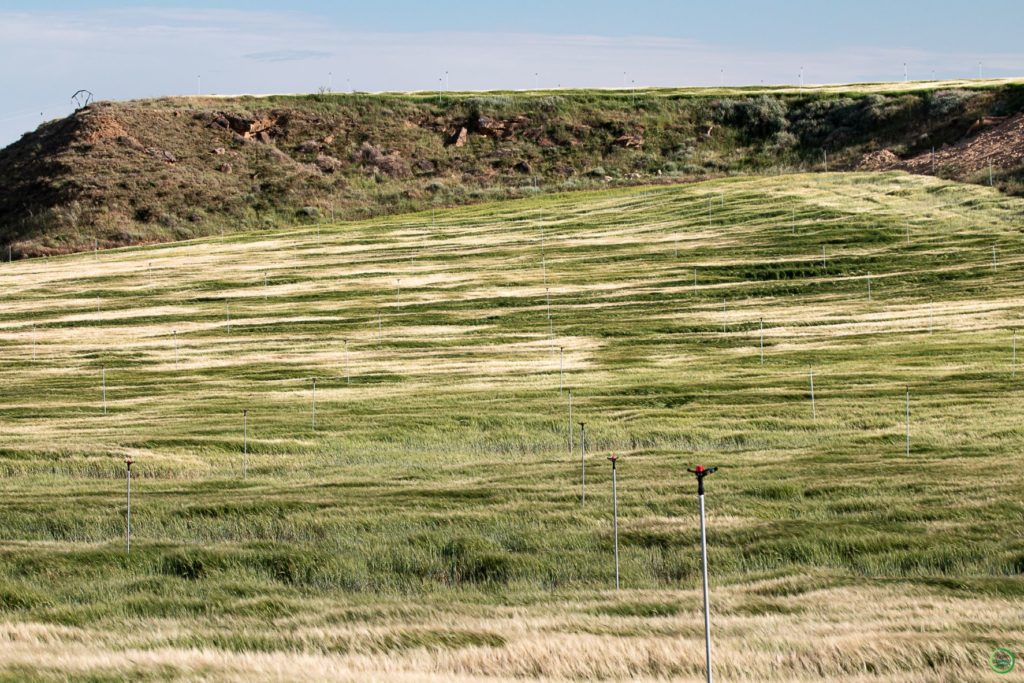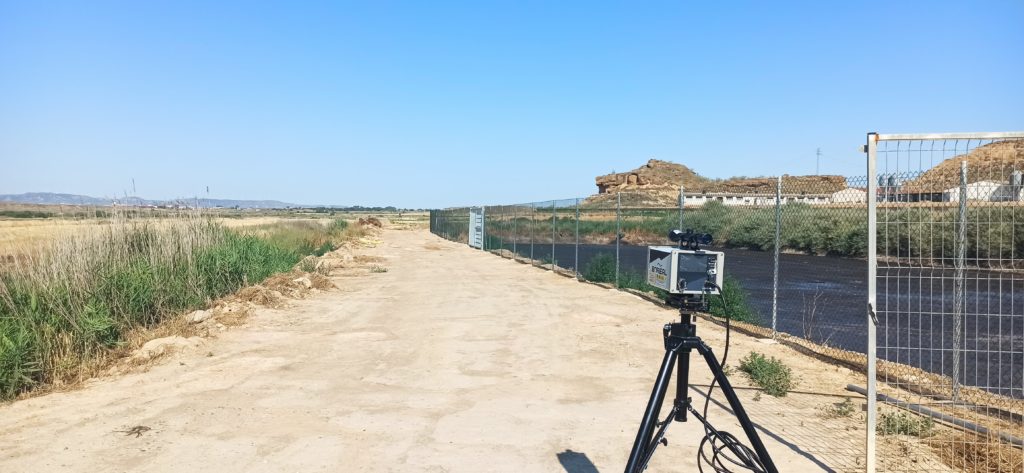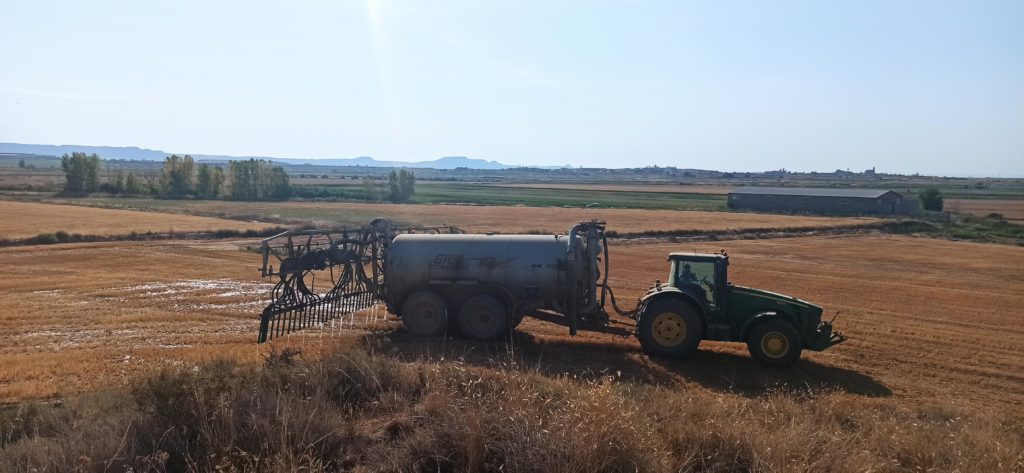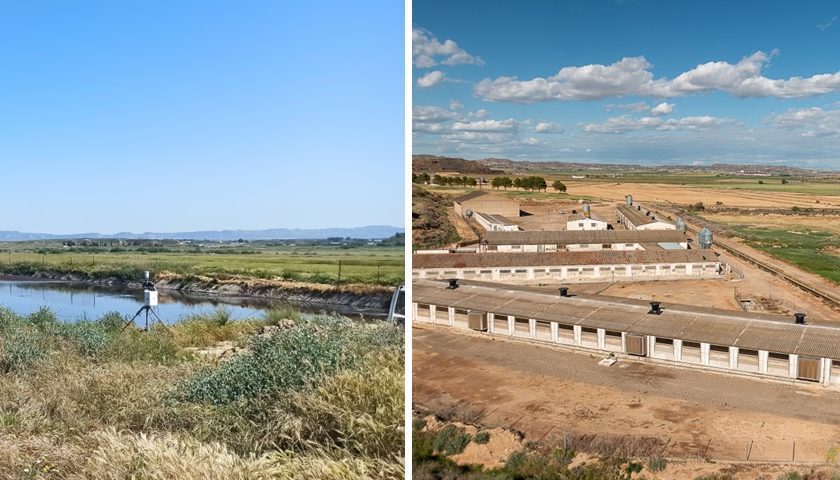Spanish and Italian partners coordinated by the Centre for Agri-Food Research and Technology of Aragon (CITA) search for integral solutions to accomplish a climate-neutral farm scheme within the framework of the Life Clinmed-Farm project. In Europe, farming is responsible for the vast majority of atmospheric emissions of ammonia and greenhouse gases (methane and nitrous oxide) (93%, 54%, and 66%, respectively). For four years (Sept. 2021 – Dec. 2025) the project will assess simple but innovative actions in pig and dairy cow farms to reduce atmospheric emissions of the abovementioned gases. Actions will be based on circular economy principles, focusing on biogas and fertilisers.
Two scenarios will be monitored, assessed, and compared from an environmental and socioeconomic point of view: the reference scenario, where pig and cow slurries will be traditionally managed, and the Clinmed scenario, where several demonstrative techniques will be implemented to mitigate emissions. The Clinmed scenario will focus on the key stages of slurry management (production in animal houses, storage in slurry lagoons, and field fertilisation), since gas emissions to the atmosphere at any stage damage the environment and decrease the value of the product as energy or fertiliser resource. In broad terms, manure will be frequently removed from animal houses, and it will be transported to a digester where two products will be obtained: biogas, which will be employed as renewable energy in the same farm or in nearby companies, and digestate, which will be applied on the field as an alternative to synthetic fertilisers. This agricultural application will be combined with technologies reducing the derived gas emissions (such as fertirrigation, soil incorporation, or the use of additives -nitrification inhibitors or acidifiers-). An article published in Tercer Milenio, the research magazine of the local newspaper Heraldo de Aragón, has recently presented the Life Clinmed-Farm Project.
The project progress and future dissemination events can be consulted on the project website (https://lifeclinmed.eu/) as well as on social media (@lifeclinmed on Twitter and Instagram).
